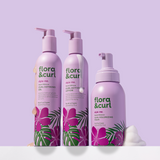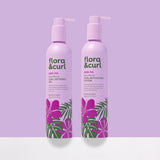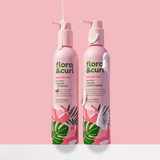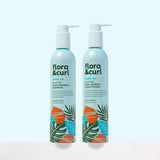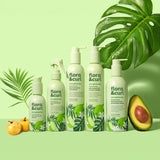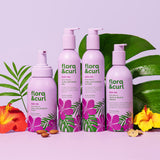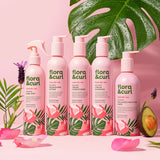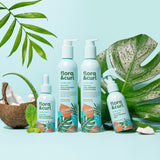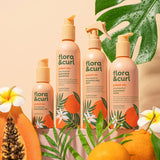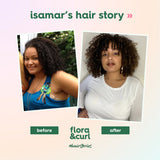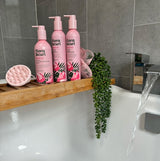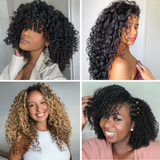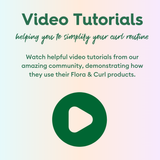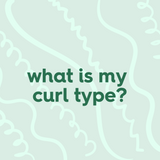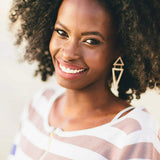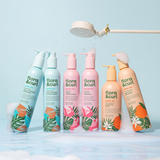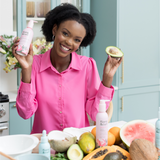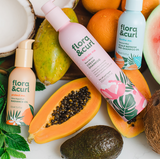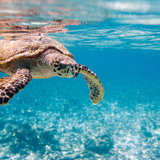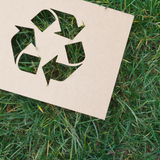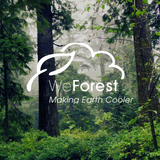

From afros, to braids, relaxed to natural and every kink, coil and curl, black hair and the natural hair movement has always been an important part of Black History and its culture.
Before chemical treatments became prominent, using heat was a way that many would use to achieve that sleek and straight look. First came the butter knife, then the hot comb and now the flat iron or straighteners.
African American women were challenged what hair is acceptable in society, where in the 1950s, it was expected for Black women to straighten their hair.
Despite the promoted ideals of straightening textured hair, the chemical process of straightening isn't always comfortable. The first hair relaxer was invented by Garret Augustus Morgan more than 100 years ago.
I had experienced many challenges while starting my hair journey. Especially when relaxing my hair and going through the “transitioning stage” when I decided to grow out the relaxer and wear my natural curls. I use to say "I'll never go natural!". I had previously thought about going natural but wasn't sure as I had heard a lot of stories about how hard natural hair is to manage and how long it takes to wash and style. Despite the promoted ideals of straightening textured hair.
Relaxed & Straight

I experienced my first relaxer when I was 13 or 14 years old, I experienced my first relaxer. I felt like I started later than usual, when I saw those faces on the boxes of the children's relaxers.
We were on holiday in New Jersey, and my Aunt decided to relax my younger sister's hair, as she really wanted it done (looking back, I’m sure this was more my Aunt than my sisters thought). But nevertheless, I ofcourse didn’t want to feel left out, so I begged my mum to get it done too.And this was the start of my relaxer journey.
The Lingo
I think this is the perfect time to let you know some of the transitioning hair lingo that I may mention going forward.
Relaxer or creamy crack:A relaxer is a chemical treatment that straightens your natural curl pattern and texture.
Transition or transitioning:
Growing your natural hair and texture from the root, while the ends of your hair are relaxed and straight.
Line of demarcation:
The line where your natural new growth hair and relaxed hair meet. This point is very delicate.
Touch up:
Only relaxing the new growth of hair
The Transitioning Phase

Going into my adult years, I would always use the children's relaxers instead of the adult ones as my scalp was quite sensitive. And suffering from eczema, this would often delay the length of time in when I would get my next touch up.
I would stretch out my relaxer touch ups every 6 months. This is often not recommended, but it worked for me.
The turning point for me was stretching out my relaxer more than 7 months due to an eczema flare up. Since then, I decided to go natural and ditch the relaxer. I thought "Kaisha, you should do it". As I previously questioned myself, why do I even continue to relax my hair, I actually like the way my natural curls look.
I can honestly say "the struggle was real." Having two types of hair textures where the line of demarcation met was definitely hard to manage and wash day for me would take twice as it usually did. Washing and conditioning my hair in 4 sections was a game changer. Whereas before I could just tip my head over the bath and wash all at once. I have always used sulphate-free shampoos and a clarifying shampoo once a month and have continued with this regime. At this point I was trying everything and any method to find my grove. I had introduced co washing into my routine and would still deep condition with indirect heat on every wash day. My hair had definitely become thicker throughout this transitioning process.
You'd also think my natural curls would have been super dry and hard to manage and my relaxed ends would take little maintenance as possible as the hair was chemically straight. But I have found that this was the complete opposite. My natural hair was super soft, easy to detangle and really moisturised, whereas my relaxed ends could sometime get knotted and feel like straw. This is one of the reasons why I stand by deep conditioning, especially at this point to keep both of my textures manageable.
Natural, Coily & Free

Transitioning had been hard and there were plenty of times when I just wanted to give up and do the "Big Chop", but with perseverance I can proudly say I am 4 years natural and loving it! I have really been on a journey to discover my natural curl pattern and texture all over again. As silly as it may sound, returning to my natural texture has given me a fresh perspective on beauty, self confidence and being a part of an amazing curly community.
My hair is now healthier, stronger and full of life. My eczema has completely gone (from my scalp that is), and parts of my hair that were broken from the relaxer (my nape in particular), have grown significantly.
Yes, the shrinkage is real (a real sign of healthy curls), but can you believe my hair is at the same length (when stretched) as when my hair was relaxed!
Having my niece tell me my hair looks like hers is truly touching as representation is everything, and really does matter!

9 Tips To Transition With Ease
- Keep it simple
Find a routine that works for you. Starting a simple routine is a good way to start as our hair needs all the love and care. Establishing a routine that works for you will be the key to your transition going smoothly. Even if it is something as simple as shampoo, condition, moisturise and a protective style.
- Keep your hair moisturised
Even though your relaxed ends will eventually go, it is still important to keep your strands from top to bottom moisturised. After all, your hair is still on your head.
- Keep up with trims
Now, this doesn’t mean you have to go for a complete big chop (well, only if you want to), but while transitioning you may experience a lot of manipulation and breakage. So this may help minimise any breakage you may come across and minimise split ends.
- Deep condition often
Deep conditioning has got to be one of my favourite parts on wash day. Your hair while transitioning is very fragile, and is at its weakest at the line of demarcation. So, you will need to treat this particular area with a little extra TLC. Deep conditioning will keep your hair moisturised and less brittle, avoiding unnecessary breakage.
- Take time when detangling
Your fingers, combs and brushes can help detangle your curls with minimal breakage and hair fall. Using your fingers can be time-consuming, but you have all the control when feeling for those tangles or separating those knots apart. To start with, your fingers are a much gentler approach to detangling. You can the go in with your comb or brush to get the rest of the knots out.
Just remember, make sure you detangle in sections, and do not detangle on dry hair!
- Protective style
If you are tired of dealing with your two textures, protective styling is a perfect way to hide your hair away and give it a moment to breathe. Not only is it stylish and beautiful, but protective styling is great for length retention and is a perfect low manipulation hairstyle. This will help cut down breakage and allow for your hair to grow. Just remember to keep the tension away from your edges and nap.
- Limit the amount of heat
I know it's hard but trying to cut out direct heat is good for a healthy transition. Let your hair breath and grow naturally so you are able to see your new curl pattern come through. Like me if you always blow dried after every wash, then try blow drying every other wash day to start with then gradually cut down. Definitely cut out the use of any other styling tools such as curling and straightening tools. After time, you will definitely start to see the difference and your hair will thank you for it.
- Patience is key
It’s called a natural hair journey for a reason. It will be tough at times, believe me, I know. But try not to compare your journey to anyone else’s. Our hair grows at its own pace, and a product or method that may work for someone else may not work for you and me.
Now I know it can be daunting, but I promise there is light at the end of the tunnel.
- Document your journey
Keep a visual diary. There is something really special about looking back at pictures and videos of your entire hair journey. From running your fingers through your sleek flowy hair, to seeing a full head of curls relaxer free. It might not seem like it in the beginning, but you will be amazed and feel a real sense of pride and achievement when looking back at how far you have come. Celebrate your win!
There are so many ways you can transition from relaxed to natural hair. Maintaining healthy hair during the process is the most important thing, no matter which way you chose to create your routine and show your waves, curls and coils. It is a great way to develop more curl confidence too.
Like many of you, I am still learning how to care for my curls and natural texture, and no two days are the same. But, there is something about a not so perfect hair journey that I love.
My curls are perfect to me, and yours are and will be too. You’ve got this!
Naturally Yours,
The Team at Flora & Curl
Continue Reading
-
Feb 4th 2026Intentional beauty is at the heart of everything we do — for your curls, your routine, and the planet.
-
Jan 14th 2026
Dry January is out, Moisturized January is In
January is the perfect time to reset your curl care routine and give your hair the deep nourishment it’s been craving. -
Nov 12th 2025
5 Ways to Tend to Your Scalp This National Healthy Skin Month
This National Healthy Skin Month, we are highlighting the importance of scalp care and the foundation for healthy curls. -
Oct 31st 2025
Moisture for Your Curls: How to Keep Your Hair Hydrated & Moisturised
Thirsty curls? Let’s fix that. Here’s your guide to keeping every strand hydrated, healthy, and happy. -
Oct 24th 2025
Protein for Your Curls: Why Protein Matters
Discover why protein matters, and how it strengthens weak curls, exploring Flora & Curl’s Strengthen Me range to repair, protect, and restore y... -
Oct 22nd 2025
Protein vs Moisture: How to Find the Right Balance for Healthy Curls
What is the difference between protein and moisture within your hair care routine? Learn how to tell what your curls need to stay strong, soft, and...
